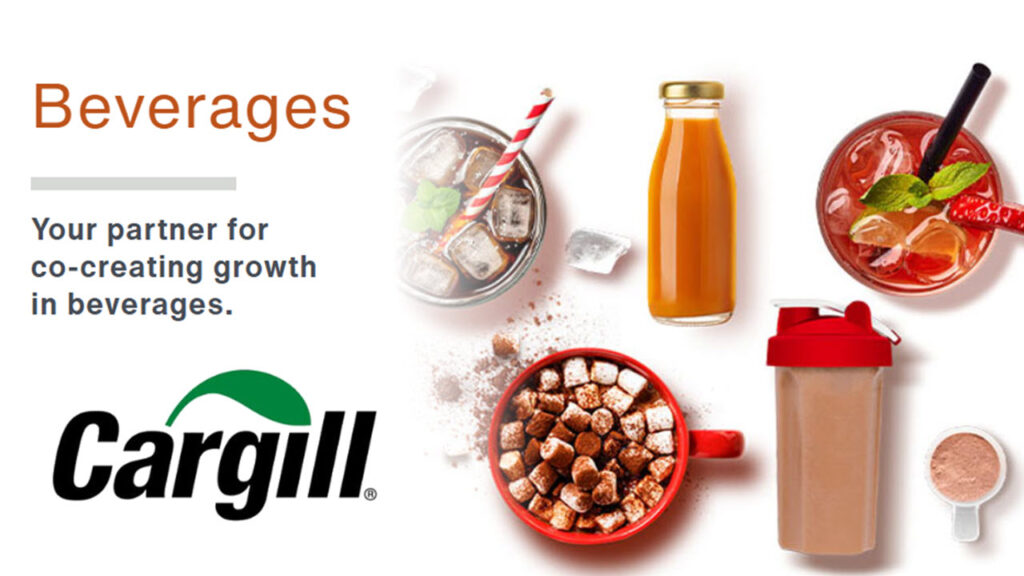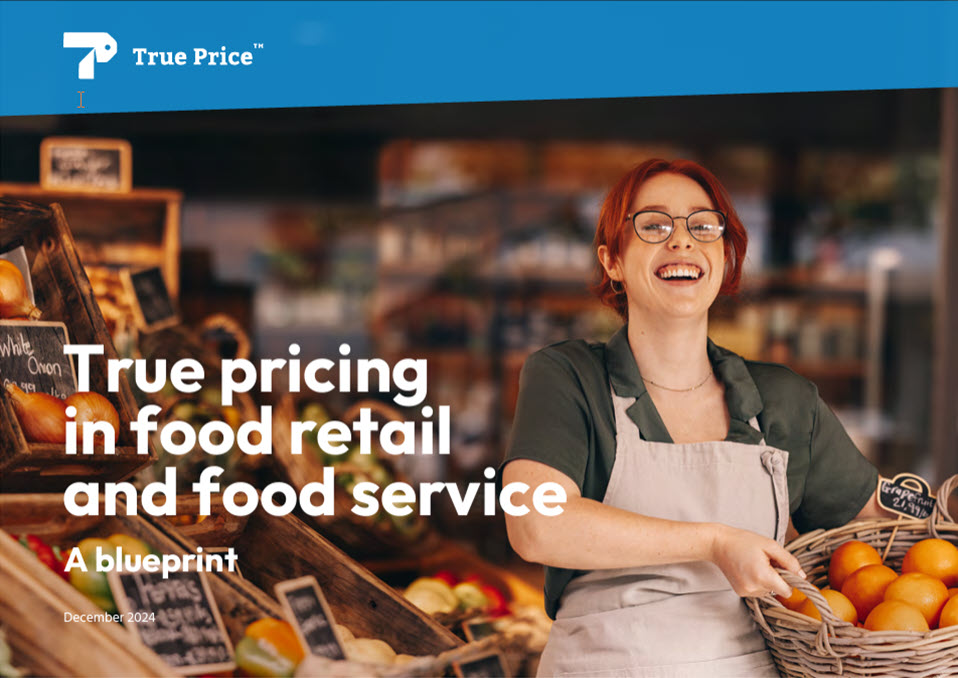Episode 198
Top tea buyer Cargill Kenya has been winding down its annual 60,000 metric tons of tea purchases at the Mombasa Tea Auction for some time. A corporate memo laments the loss of Unilever and clients like Van Rees and recommends closing the trade desk and six warehouses after 40 years. It is a strategic move driven by lower commodity prices globally. With a $160 billion turnover, US-based Cargill reported a $17 billion decline in yearly sales in May. | Tea importers in Pakistan are resisting the imposition of a Minimum Retail Price as the base for payment of sales tax, which, at 18%, adds Rs 216 per kilo to the cost of bulk tea. Importers want the tax applied to the import value as a raw product. | The Netherlands-based nonprofit True Price Foundation released a food and beverage report for retail and food service, making the business case for calculating and transparently communicating the hidden costs to people and the environment for producing food.

Tea News for the week ending 13 December 2024
Powered by RedCircle
India Tea News
Tea News

Top Buyer Cargill Exits the Mombasa Tea Auction
By Dan Bolton
Cargill Kenya, Ltd., the largest buyer at the Mombasa auction, announced it will cease trading tea after 40 years.
The company purchases approximately 60,000 metric tons annually, which gives it a 15% to 20% market share at the weekly auction. The annual trade value ranges from $180 to $210 million. Sales have declined in the past year following the sale of Unilever’s tea properties to Lipton Teas & Infusions. Cargill also manages six Mombasa warehouses with a combined capacity of 20,000 metric tons.
Continued…
Cargill has extensive trade contracts for wheat, maize, barley, and soybeans grown in East Africa. An internal Cargill memo, reported by Food Business Africa, disclosed that the tea business lacks clear synergies with Cargill’s other agricultural and trading divisions, prompting the decision to divest.
Tea operations were initially developed to support Unilever’s tea holdings. However, according to the memo, the business is no longer a strategic fit following Unilever’s sale. The Mombasa operation employs 40 workers.
Cargill Chairman and CEO Brian Sikes, who joined the Minnesota-based company’s board last January, has consolidated the company’s operational units globally in response to declining commodity prices. He announced, QUOTE, “Our recent performance and emerging market trends underscore the urgent need for change.”
Cargill is the largest privately held company in the US, with an annual turnover of $160 billion for the fiscal year ending May 2024, a decrease from the previous year’s $177 billion.
Cargill Kenya is the company’s oldest footprint on the African continent. The tea trading operation was founded in 1948 by the Ralli Brothers, who initially traded cotton. Cargill acquired Ralli in 1984, and the tea operations were integrated into the company’s Agricultural Supply Chain (CASC) Enterprise in the Europe, Middle East & Africa (EMEA) region.
According to Agriss News, Cargill’s clients include Van Rees, Mitchell Cotts, and KTDA-Chai Trading, all of which have transitioned to other service providers.
There are 82 trading companies active in the Mombasa Tea Auction
BIZ INSIGHT – The Eastleigh Voice writes, “Cargill’s exit is expected to create downward pressure on tea prices, potentially reducing farmers’ incomes at a time when they were hoping for improvement through ongoing sector reforms.”

Tea Importers Oppose Pakistan’s Minimum Retail Price
By Dan Bolton
Pakistan’s newly imposed Minimum Retail Price (MRP) for tea imports and locally grown tea is taxing the patience of importers and tea sellers.
Black tea imports dropped 24% in November to $38 million, down Rs 1.78 billion, as an estimated one-quarter of tea imports shifted to illegal channels, according to Pakistan Tea Association (PTA) Chairman Muhammad Altaf.
The 1200 rupee per kilo retail price minimum set by Pakistan’s Federal Board of Revenue (FBR) for black tea has raised concerns about increased costs and depressed demand. FBR initiated the minimum to enhance government revenue during a fiscal crisis.
Importers protest that the tax should apply to the actual import value of processed tea, mainly landed in bulk for blending and packaging. Instead, FBR levies a standardized 18% sales tax based on a retail market price determined by the government, resulting in a sales tax of Rs 216 per kilo.
If the actual retail price of tea exceeds the MRP of Rs. 1,200 per kilogram, the sales tax is calculated on the higher price. According to FBR, this policy ensures that the tax reflects the true market value of the product.
Tea Association officials said the fixed MRP will increase packaged tea prices by Rs 150 to Rs 300 per kilo, burdening consumers and encouraging the smuggling of lower-quality tea from Afghanistan. Altaf told Pakistan Today that the standardized MSR oversimplifies the complexities of the tea trade and will lead to significant revenue loss by the end of the fiscal year.
The Sales Tax Act 1990 does not explicitly classify tea as a raw material. Instead, tea is grouped with mate under the provisions of the Customs Act of 1969. Applying the tax to the declared import value will lower tax revenue.
Pakistan imported 161,823 metric tons of tea during the first seven months of the current fiscal year (January-July). The tea, mainly supplied by Kenya, was valued at $391 million, an increase of 7.6% compared to last year. Kenya exports 83% of Pakistan’s imports, with Rwanda (4.5%) and Uganda (4%) accounting for the remainder.

Nonprofit True Pricing Releases Food and Beverage Report
The True Price Foundation has published an insightful 28-page report on food pricing in retail and food service. The report is relevant to cafes, canteens, restaurants, supermarkets, and tea shops.
The foundation is a nonprofit organization headquartered in the Netherlands dedicated to fully understanding the hidden social and environmental impacts of products not included in prices. “In the context of food, true pricing aims to ensure affordable and healthy food is accessible to people.
The report is free to download at www.trueprice.org and responds to growing momentum for true pricing in food retail and food service.
“True pricing is increasingly becoming a tendering distinguisher in public procurement for catering and supermarkets,” the report describes a true pricing pilot at German retailer PENNY.
Transparency is the heart of the foundation’s work.
“At its core, true pricing is about comprehensive transparency on products, how they are made, and what additional costs might be associated with a transition to a food system that respects the rights of people and ecological boundaries.”
According to the report, “what you can achieve with true pricing depends on the traceability level of your assortment.”
The report identifies several business advantages of true pricing, including greater engagement with consumers, trust in supply chains that help prevent price shocks, differentiation from competitors, and data generation to meet forthcoming compliance requirements for sustainability established by EU regulators.
The report encourages retailers to discover hidden costs and then close the gap between market price and true price, noting that the most significant impacts of food often occur within the product value chain, especially on farms.
The foundation has developed a True Price Method to quantify hidden costs. “The degree of detail of a true price scan increases when a business and its suppliers collect more data, allowing you to make more informed decisions about products or suppliers. Data collection and refinement of the true price scan is an ongoing process.
BIZ INSIGHT—The report advises producers to first align their company with sustainability practices and retailers to incentivize consumers and, with the help of sommeliers, baristas, and waitstaff, communicate in the consumers’ own language. Retailers benefit, for example, by identifying environmental costs that amount to 18% of the purchase price backed by an audit of the supply chain using the True Price methodology.
Download the 28-page publication here.
FEATURE

The History of Tea at Christmas
By Dan Bolton
The tradition of drinking tea, herbal infusions, and spiced beverages during the holiday season has evolved from medieval medicinal remedies to sophisticated and cherished modern holiday customs, reflecting centuries of cultural exchange, religious symbolism, and festive cheer.
Who better to describe this history than our guest today, Santa Claus?
Jolly old St. Nicholas recounts the nearly two-thousand-year evolution of holiday beverages.
Listen to the story
Powered by RedCircle
Sharing is Caring
Top Buyer Cargill Exits the Mombasa Tea Auction after 40 Years | Tea Importers Oppose Pakistan’s Minimum Retail Price | Nonprofit True Pricing Releases Food and Beverage Report | PLUS | The History of Tea at Christmas by Jolly Old St. Nicholas | Episode 198 | 13 December 2024
Sign up to receive Tea Biz weekly in your inbox.

